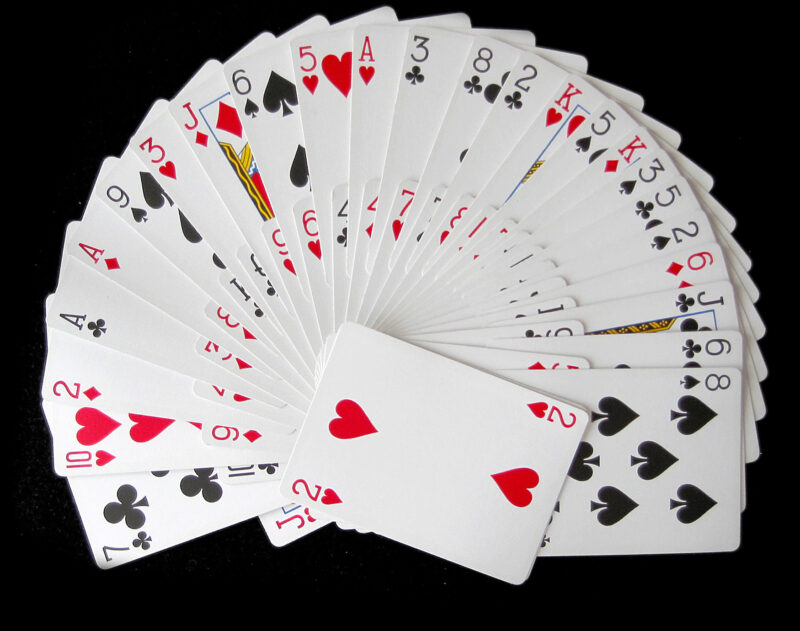I will never forget my first time playing poker in a casino. I was so terribly bad, the guy next to me turned my way and said, “You played that hand terribly.”
“Oh, how so?” I replied, unnerved.
“Well for starters,” he responded, “I could see your cards.”

Ha! Touché.
Rather than be insulted, he had a point.
(And, for what it’s worth, he was right. I actually remember the hand: I had just called a raise with Ace-King suited, flopped the nut flush draw, and checked down the whole way. Yikes, how painfully passive. Talk about missing a bet.)
It’s been a long time since then when I was playing fit-or-fold poker (no bluffing, no barreling, no betting without a made hand). I am no longer a deer stuck in the headlights.
Looking back, what advice would I give to my younger poker self? Here’s what I wish I could’ve said:
-
Fold
Fold, fold, fold. Eight-six suited isn’t nearly as exciting as it looks. Expect to fold most of the time, and remember the likelihood of flopping two pair is only 2%. It isn’t usually going to happen. And don’t even think about the odds of flopping a straight.
-
Small pairs are overrated
Especially in tournaments. You can’t be a net winner through straight flips. You want to get your money in when you have an edge and flip only if necessary. Back then, you would have had to pry a pair out of my hands from under-the-gun when I had 15 big blinds with advanced machinery. Today, I’m more than happy to let that go and wait for a better spot.
-
Position matters
Even if you don’t quite know it yet, the simple things add up. You can generate bigger pots in position because you have better control of the betting, and you can take advantage of what my husband calls a four-card-flop: reraise preflop, so you can sometimes check back the flop and see a free turn card. You’ll have a much clearer idea of whether or not your hand is best with four cards rather than three.
-
Watch how people pick up their cards
Very seldom does someone discover a pair of aces in the hole and steadily stare, contemplating their decision. Instead, they almost always immediately put their cards back down. But when someone is studying their hand, looking at their cards, thinking it through like they’ve got a real decision, they probably have a more medium holding like Jack-Eight suited and are wondering, “Can I play this?”
-
Consider people’s motivations
Before, I always thought bluffing was based on the cards. Now, I realize it’s based more on the person. Just because a flush draw missed, doesn’t mean your opponent is likely to bluff. What makes them likely to bluff, then? The fact they seem interested in doing so. Some people come to poker tables to battle it out and make big moves while others are genuinely there to relax and see if their cards hit. Knowing what kind of an opponent you’re up against – and their reasoning for being there in the first place – will get you further than any comprehension of board texture.
-
Respect the threshold
Some people are “threshold players,” meaning once they’ve reached a certain hand strength, they’re not folding. No matter what. No matter what you bet, say, or do. This can be as marginal as a pair of aces – even if the board is 6♥ 7♥ 8♥ 9♥, there are players who simply won’t fold black pocket rockets. Or, more likely, you’ll come across someone who is never folding two pair, regardless if the flush or straight gets there. Learning to identify and accept when someone is at their “sigh, I call” threshold is key to avoiding bluffing off chips unnecessarily.
-
Don’t take everyone’s advice
Not everyone is as skilled as they think. When someone offers you feedback, take it with a grain of salt.
-
Avoid paying people off
The vast majority of the population under-bluffs. They’re not betting anywhere close to the frequency that computers say they should. Give them credit for having good hands and don’t get in the habit of paying people off, lest you become a threshold player yourself, needing to call the bet even when you’re pretty sure you’re beat. Folding is often the most profitable move in poker.
-
Watch poker streamers
There are so many great ways to improve your poker game – read strategy articles and books (hey, I wrote my own), join training sites, watch vlogs, etc. And they all have their merit. I will say, however, the resource I think I underutilized was watching Twitch streamers. It’s rarely the most exciting format of watching and learning poker – they spend long periods of time folding just like the rest of us – but hearing them talk through complex decisions in real-time amounts to some absolute gems of wisdom. There’s also a sense of camaraderie you get experiencing the bad beats alongside them. (Maybe you’re not the unluckiest player in the world. Imagine that.)
-
We’re all human
To this day, sometimes I beat myself up over a bad bluff or a spot where I felt like I knew a better play to make, but didn’t commit. It happens. But even the pros make mistakes. We’re all just people after all … otherwise, poker wouldn’t be beatable.


